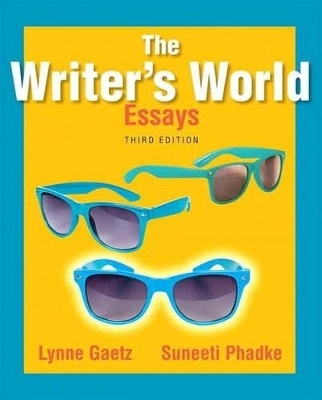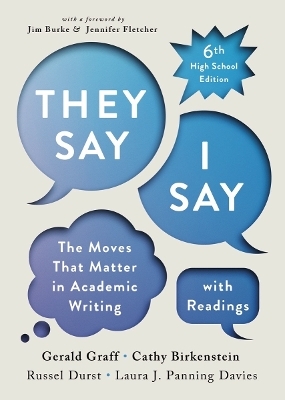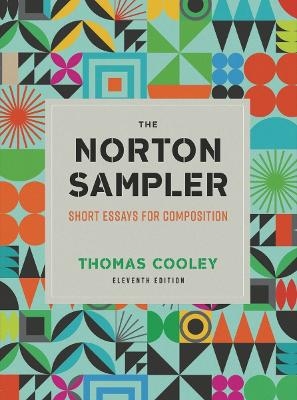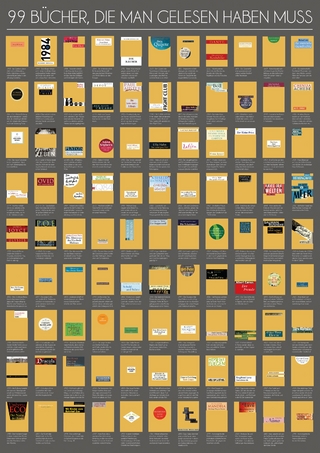
The Writer's World
Longman Inc
978-0-13-403820-9 (ISBN)
- Titel ist leider vergriffen;
keine Neuauflage - Artikel merken
Understanding that learning to write is not a “one for all” formula, authors Lynne Gaetz and Suneeti Phadke wrote The Writer’s World to help instructors reach as many students as possible by meeting their needs and addressing their individual interests and abilities. The authors’ innovative instruction seamlessly infuses material(s) for native and nonnative speakers, and their exercises and activities encourage active participation in the learning. The inviting design of The Writer’s World grabs students’ attention and illustrates concepts clearly.
Part I The Writing
Process
1 Exploring
Key Steps in Exploring
Topic
Audience
Purpose
Exploring Strategies
Journal and Portfolio Writing
2 Developing the Main Idea
Key Steps in Developing the Main Idea
Writing a Thesis Statement
Developing the Supporting Ideas
3 Developing the Essay Plan
Key Steps in Developing the Essay Plan
Organizing Supporting Ideas
Space Order
Emphatic Order
Developing an Essay Plan
4 Developing the First Draft
Key Steps in Developing the First Draft
Writing an Introduction
Writing Complete Body Paragraphs
Writing a Conclusion
Choosing an Essay Title
Writing the First Draft
5 Revising and Editing
Key Steps in Revising and Editing
Revising for Unity
Revising for Adequate Support
Revising for Coherence
Revising for Style
Editing for Errors
Writing the Final Draft
Part II Essay Patterns
6 Illustration
What Is Illustration?
The Illustration Essay
Explore Topics
The Thesis Statement
The Supporting Ideas
The Essay Plan
The First Draft
Revise and Edit an Illustration Essay
A Professional Essay
“We’re Watching What We Eat” by Al Kratina
7 Narration
What Is Narration?
The Narrative Essay
Explore Topics
The Thesis Statement
The Supporting Ideas
The Essay Plan
The First Draft
Revise and Edit a Narrative Essay
A Professional Essay
“Botched Tan” by Sarah Stanfield
8 Description
What Is Description?
The Descriptive Essay
Explore Topics
The Thesis Statement
The Supporting Ideas
The Essay Plan
The First Draft
Revise and Edit a Descriptive Essay
A Professional Essay
“With an Open Mouth” by Sy Montgomery
9 Process
What Is Process?
The Process Essay
Explore Topics
The Thesis Statement
The Supporting Ideas
The Essay Plan
The First Draft
Revise and Edit a Process Essay
A Professional Essay
“Do You Have What It Takes to Be Happy?” by Stacey Colino
10 Definition
What Is Definition?
The Definition Essay
Explore Topics
The Thesis Statement
The Supporting Ideas
The Essay Plan
The First Draft
Revise and Edit a Definition Essay
A Professional Essay
“Internet Trolls” by Lisa Selin Davis
11 Classification
What Is Classification?
The Classification Essay
Explore Topics
The Thesis Statement
The Supporting Ideas
The Essay Plan
The First Draft
Revise and Edit a Classification Essay
A Professional Essay
“Types of Correctional Officers” by Frank Schmalleger
12 Comparison and Contrast
What Is Comparison and Contrast?
The Comparison and Contrast Essay
Explore Topics
The Thesis Statement
The Supporting Ideas
The Essay Plan
The First Draft
Revise and Edit a Comparison and Contrast Essay
A Professional Essay
“Viral Vigilantes” by Matthew Fraser
13 Cause and Effect
What Is Cause and Effect?
The Cause and Effect Essay
Explore Topics
The Thesis Statement
The Supporting Ideas
The Essay Plan
The First Draft
Revise and Edit a Cause and Effect Essay
A Professional Essay
“Friendless in North America” by Ellen Goodman
14 Argument
What Is Argument?
The Argument Essay
Explore Topics
The Thesis Statement
The Supporting Ideas
The Essay Plan
The First Draft
Revise and Edit an Argument Essay
A Professional Essay
“Keep Your Roses” by Melonyce McAfee
Part III More College and Workplace Writing
15 The Essay Exam
Preparing for Exams
Writing Essay Exams
16 Summarizing
What Is a Summary?
How to Write a Summary
Summarizing a Longer Text
17 The Research Essay
Planning a Research Essay
Gathering Information
Evaluating Sources
Taking Notes
Organizing Your First Draft
Incorporating Visuals
Citing Sources
Avoid Plagiarism
Integrating Paraphrases, Summaries, and Quotations
MLA Style: In-Text Citations
Sample Research Essay
18 The Response Essay
Writing a Response Essay
Follow the Writing Process
Include Quotations
19 The Résumé and Letter of Application
Preparing a Résumé
Writing a Letter of Application
Part IV Editing Handbook
SECTION 1 Effective Sentences, Section THEME: Conflict
20 Identifying Subjects and Verbs in Simple Sentences
Identifying Subjects
Identifying Verbs
21 Sentence Combining
Understanding the Parts of a Sentence and Sentence Types
Making Compound Sentences
Making Complex Sentences
22 Sentence Variety
What Is Sentence Variety?
Varying the Opening Words 326
Combining Sentences with an Appositive
Combining Sentences with Relative
Clauses
Writing Embedded Questions
SECTION 2 Common Sentence Errors, Section THEME: Urban Development
23 Fragments
What Are Fragments?
Phrase Fragments
Fragments with -ing and to
Explanatory Fragments
Dependent-Clause Fragments
24 Run-Ons
What Are Run-Ons?
Correcting Run-Ons
25 Faulty Parallel Structure
What Is Parallel Structure?
Correcting Faulty Parallel
Structure
26 Mistakes with Modifiers
Misplaced Modifiers
Dangling Modifiers
SECTION 3 Verbs, Section THEME: Travel and Survival
27 Subject—Verb Agreement
Basic Subject—Verb Agreement Rules
More Than One Subject
Special Subject Forms
Verb Before the Subject
Interrupting Words and Phrases
28 Verb Tenses
What Is Verb Tense?
Present and Past Tenses
Past Participles
Present Perfect Tense
Past Perfect Tense
Passive Voice
Progressive Forms
29 Problems with Verbs
Verb Consistency
Avoiding Double Negatives
Nonstandard Forms–Gonna, Gotta, Wanna, Ain’t
Problems in Conditional Forms
Nonstandard Forms–Would of, Could of, Should of
Recognizing Gerunds and Infinitives
SECTION 4 More Parts of Speech, Section THEME: Inventions and Discoveries
30 Nouns, Determiners, and Prepositions
Count and Noncount Nouns
Determiners
Prepositions
31 Pronouns
Pronoun—Antecedent Agreement
Indefinite Pronouns
Vague Pronouns
Pronoun Shifts
Pronoun Case
Relative Pronouns
32 Adjectives and Adverbs
Adjectives
Adverbs
Comparative and Superlative Forms
SECTION 5 Word Use and Spelling, Section THEME: Our Natural World
33 Exact Language
Using Specific and Detailed
Vocabulary
Avoiding Wordiness and Redundancy
Avoiding Clichés
Using Standard English
34 Spelling and Commonly Confused
Words
Spelling Rules
120 Commonly Misspelled Words
Look-Alike and Sound-Alike Words
SECTION 6 Punctuation and Mechanics, Section THEME: Human Development
35 Commas
What Is a Comma?
Commas in a Series
Commas After Introductory Words and Phrases
Commas Around Interrupting Words and Phrases
Commas in Compound Sentences
Commas in Complex Sentences
36 Apostrophes
What Is an Apostrophe?
Apostrophes in Contractions
Apostrophes to Show Ownership
Apostrophes in Expressions of Time
37 Quotation Marks, Capitalization, and Titles
Quotation Marks
Using Quotations in Research Essays
Capitalization
Titles
38 Numbers and Additional
Punctuation
Numbers
Additional Punctuation
SECTION 7 Editing
39 Editing Practice
Why Bother Editing?
Part V Reading Selections and Strategies
40 From Reading to Writing
Reading Strategies
Reading Selections
Conflict
“The CSI Effect” by Richard Willing
“Types of Rioters” by David Locher
“My Bully, My Best Friend” by Yannick LeJacq
Urban Development and Our Natural World
“Living Environments” by Avi Friedman
“My African Childhood” by David Sedaris
“Nature Returns to the Cities” by John Roach
Inventions and Discoveries
“Marketing New Inventions” by Robert Rodriguez
“Brands R Us” by Stephen Garey
“Can We Talk?” by Josh Freed
Travel and Survival
“The Rules of Survival” by Laurence Gonzales
“Into Thin Air” by Jon Krakauer
“Slum Tourism” by Eric Weiner
“Guy” by Maya Angelou
Human Development
“How Cults Become Religions” by John D. Carl
“The Untranslatable Word ‘Macho’” by Rose del Castillo Guilbault
“Chance and Circumstance” by David Leonhardt
“The Happiness Factor” by David Brooks
“Medicating Ourselves” by Robyn Sarah
“The Veldt” by Ray Bradbury
Appendices
Appendix 1: Grammar Glossary
Appendix 2: Irregular Verbs
Appendix 3: Verb Tenses
Appendix 4: Combining Ideas in Sentences 608
Appendix 5: Using APA Style
Appendix 6: Spelling, Grammar, and Vocabulary
Logs
Credits
Index
Revising Checklist for an Essay
Editing Checklist
Revising and Editing Symbols
| Erscheint lt. Verlag | 14.7.2015 |
|---|---|
| Verlagsort | New Jersey |
| Sprache | englisch |
| Gewicht | 862 g |
| Themenwelt | Schulbuch / Wörterbuch ► Wörterbuch / Fremdsprachen |
| Geisteswissenschaften ► Sprach- / Literaturwissenschaft ► Literaturwissenschaft | |
| Geisteswissenschaften ► Sprach- / Literaturwissenschaft ► Sprachwissenschaft | |
| ISBN-10 | 0-13-403820-7 / 0134038207 |
| ISBN-13 | 978-0-13-403820-9 / 9780134038209 |
| Zustand | Neuware |
| Haben Sie eine Frage zum Produkt? |
aus dem Bereich


